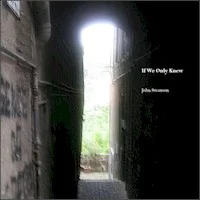Styles: Piano Jazz
Year: 2018
File: MP3@320K/s
Time: 72:07
Size: 166,1 MB
Art: Front
(5:15) 1. Sbucata da una nuvola
(3:46) 2. Galapagos
(5:02) 3. Certe giornate al mare
(3:33) 4. La nebbia a Napoli
(5:02) 5. Habarossa
(5:42) 6. Uomini e polli
(3:29) 7. Ho perduto il mio pappagallino
(4:40) 8. Criatura dourada
(3:20) 9. Michelangelo Antonioni
(3:58) 10. Accettare tutto
(6:31) 11. Ravaskia
(4:28) 12. Olha a Brita
(4:57) 13. Il gabbiano ischitano
(4:16) 14. Aleijadinho lê o Codex Seraphinianus aquì
(3:45) 15. Nação
(4:16) 16. Que Bom
Italian piano genius Stefano Bollani's new Brazilian album QUE BOM building on the success of his successful album CARIOCA (2008), which sold over 70'000 copies. Que Bom primarily consists of Bollani's own original tunes and distinctive melodies strongly influenced and informed by Brazilian music culture, which Bollani has always cherished since the very beginning of his rich, multifaceted crackerjack music making and dexterous playing. In QUE BOM - a genuine hymn to life marked by sparkling liveliness and (contagious) joy Bollani is joined by the same outstanding rhythm section as in CARIOCA - Jorge Helder (db), Jurim Moreira (dr) and Armando Marçal (perc) - plus Thiago da Serrinha (perc), but here, in QUE BOM, also by the grand guest stars Caetano Veloso, João Bosco, Jaques Morelenbaum and Hamilton de Holanda. The CD packaging, an elegant and exquisite 6-side DigiSleeve with an 8-page booklet (concept & supervision of the art work by Italian actress and artist Valentina Cenni) contains the lyrics of the songs with Caetano Veloso and João Bosco, photos of the merry Rio recording session by Vinícius Giffoni and extraordinary pictures from Codex Seraphinianus by Italian artist and designer Luigi Serafini. QUE BOM, entirely produced by Bollani, is the first album to be released worldwide by his own newly created label ALOBAR. ~ Editorial Reviews https://www.amazon.com/Que-Bom-Stefano-Bollani/dp/B07BSXX4GT




















